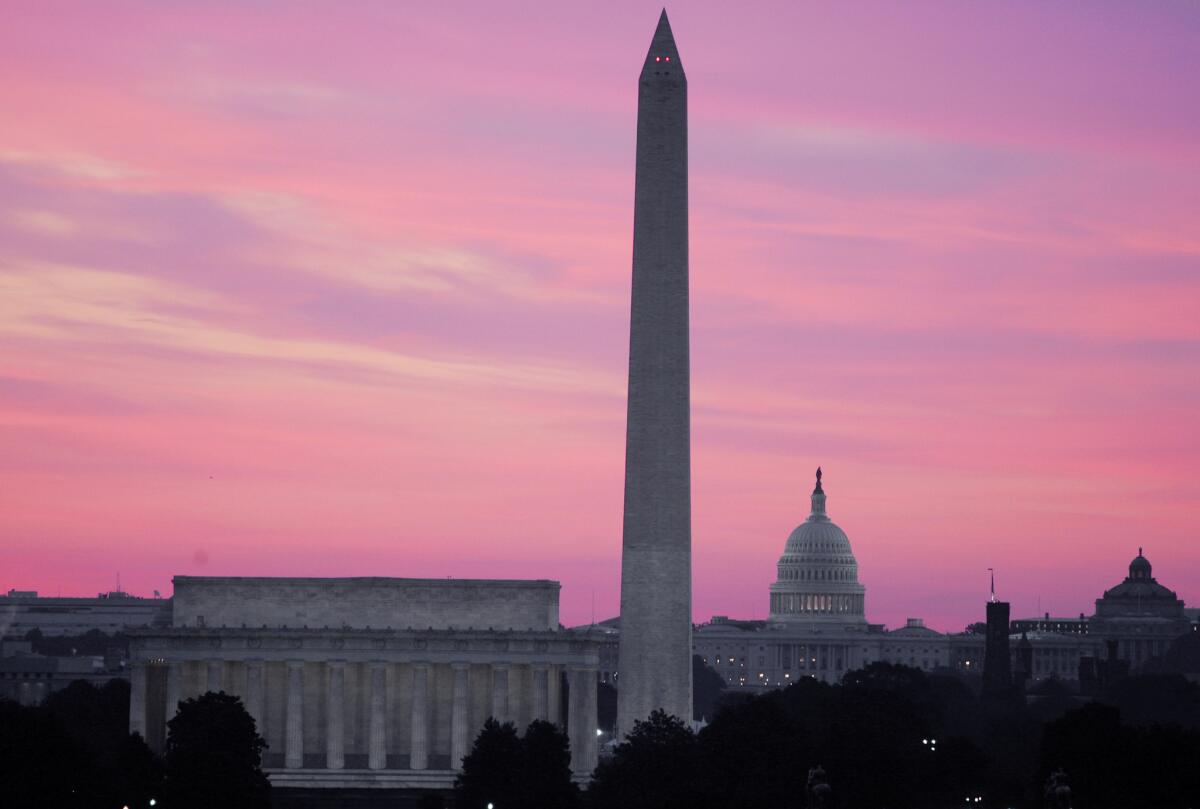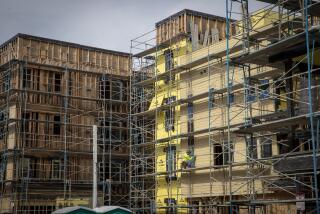Would taller buildings ruin the Washington, D.C., skyline?

WASHINGTON--Will visitors to the nation’s capital still be able to see a skyline that includes the Washington Monument, the U.S. Capitol and other national landmarks if Congress relaxes century-old building height restrictions?
That was perhaps the biggest – and still unresolved – question raised at a congressional hearing Monday on a proposal to allow taller buildings in the District of Columbia. The hearing before the House Oversight and Government Reform Committee highlighted divisions over the issue, with two planning officials taking opposite positions.
D.C. planning director Harriet Tregoning said current height limits “constrain the city’s ability to grow and accommodate future demand, which in turn threatens our ability to maintain our fiscal stability and continue to provide critical services to residents, workers and visitors of the city.’’
But Marcel Acosta, executive director of the National Capital Planning Commission, said the 1910 federal Height of Buildings Act has played a central role in shaping Washington’s “unmistakable and symbolic skyline,” and he warned that taller buildings in the city’s historic core could fundamentally change the way people experience the nation’s capital.
“Our forefathers who established this capital planned a city that emphasizes views to and from important public places,’’ he told lawmakers.
Contrary to a popular myth that federal law prohibits buildings in the city from being taller than the 555-foot Washington Monument or the 287-foot Capitol, heights are tied to the widths of adjacent streets. Buildings on commercial streets are generally limited to 130 feet, typically 10 to 13 stories, except for a stretch of Pennsylvania Avenue where they can reach up to 160 feet.
The D.C. Office of Planning, with the support of Washington Mayor Vincent Gray, has proposed allowing buildings as tall as 200 feet, roughly 17 or 18 stories, on a number of the city’s widest streets.
The limits were put in place after construction of the 12-story Cairo building in the 1890s angered residents who said it blocked views, shut out sunlight and posed a fire hazard. But pressure to allow taller buildings has grown as structures across the Potomac River in Virginia have risen to more than 300 feet and as the city’s population has grown.
“The District of Columbia is a growing city, now robustly adding population after more than five decades of steady population loss,’’ Tregoning told lawmakers.
She warned that keeping the current height limits would put the nation’s capital “on the path to becoming a city comprised primarily of national monuments surrounded by exclusive neighborhoods affordable only to a very few.’’
In an interview with The Times, Tregoning said, “We care as much about the views to our monuments and memorials as anybody does.’’ She said that if a taller building would affect views, “we wouldn’t allow it to go that high.’’
The planning department also has called for studying the idea of taller buildings farther from the city’s historic core, an idea that could gain more support.
The hearing was called by Rep. Darrell Issa (R-Vista), chairman of the House Oversight and Government Reform Committee, which oversees the district.
ALSO:
Phoenix flight passengers told to get tuberculosis test
New York train engineer to be interviewed; derailment victims ID’d
Same-sex weddings start in Hawaii, two decades after battle began
More to Read
Sign up for Essential California
The most important California stories and recommendations in your inbox every morning.
You may occasionally receive promotional content from the Los Angeles Times.











